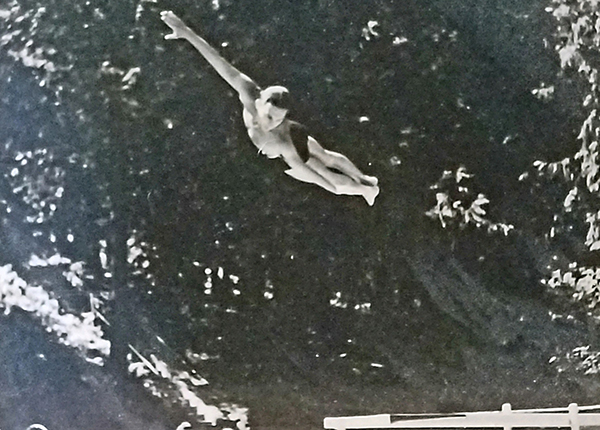Avshalomov/Bernstein 3: Avshalomov’s early years
Posted on January 28, 2019

Avshalomov’s path, in contrast, was much more circuitous, as illustrated by the title and preface of his perfectly-named intergenerational autobiography, Avshalomovs’ Winding Way:
“This is a tale essentially about my Father, Aaron, and myself—in and out of China, in and out of music. It shows what we had to do to survive while pursuing creative aims and clinging to our ideals. Although we were separated for long periods and great distances, our careers were intertwined from our youth until his death, and even after…” (Avshalomov, p. 17).
These days here in Portland, and especially at PYP, we remember “Mr. A” as the venerated longtime conductor of Portland Junior Symphony/Portland Youth Philharmonic, who also happened to compose. His reputation in the rest of the world, however, was as a composer, especially of works involving voice, who also happened to contribute to the world the novel, inspiring idea of a competent symphony orchestra made up of young musicians. For the benefit of our local community, we’ll take this opportunity to foreground Mr. A’s life as a composer, as the history of his work with PYP is more easily available.
The only child of a Russian expat father and American expat mother, Jacob grew up in China, fluent in Mandarin, English, and basic Russian. The family temporarily relocated to the US at a time of unrest, taking up residence for an extended period in Portland. While they were there, PJS performed a piece by Aaron, as Aaron and Gershkovitch had become friends as fellow Russian expats to China years before. In Portland, Jacob would listen to his father compose each morning and it came to seem like “a ritual, something one did naturally to start the day” (AWW, p. 59). Sometime before age 10, he composed his very first piece while studying piano with Lucia Gershkovitch; the piece, Esquise Orientale, imitated his father’s use of the pentatonic scale and 2/4 time, giving “an oriental flavor”.
When the family went back to Tientsin, Jacob’s father felt artistically claustrophobic around his practical-minded wife; he soon left the family and moved to Shanghai when Jacob was 11. It was understandably traumatic for Jacob as he entered his teens; he describes finding several alternate ‘foster-fathers’ in his life, while also documenting the path back to a real personal and artistic connection with his own father in later years.
Jacob played cricket and soccer in school, finished high school at age 14. Three days later his mother, who worried about money like Bernstein’s father did, found him full-time work in world’s largest sausage-casing-factory, of all places. He found friends there, though, and made the best of it: eventually Jacob rose to expertise and even a kind of fame in the most glamorous task at the decidedly unglamorous factory: measuring lengths of fresh sheep gut. He even came to regard his measuring-mentor as a father-figure, one of the most significant teachers of his life.
Alongside his full-time work, teenage Jacob led an active social life. Because his friends were swimming, he went from not knowing how to swim at all to not only learning to swim, but mastering water polo and diving well enough to be the “North China champion” (‘foreigners only’ competition) in men’s diving from 1934-36, when he was 15-17 years old! (photo above: courtesy of Doris Avshalomov). A pattern of Jacob’s youth emerged: wherever he put his efforts, from academics to sausage casings to sports, he ended up excelling.
Next: Avshalomov’s early years Part 2
Carolyn Talarr, Community Programs Coordinator

0 Comments :